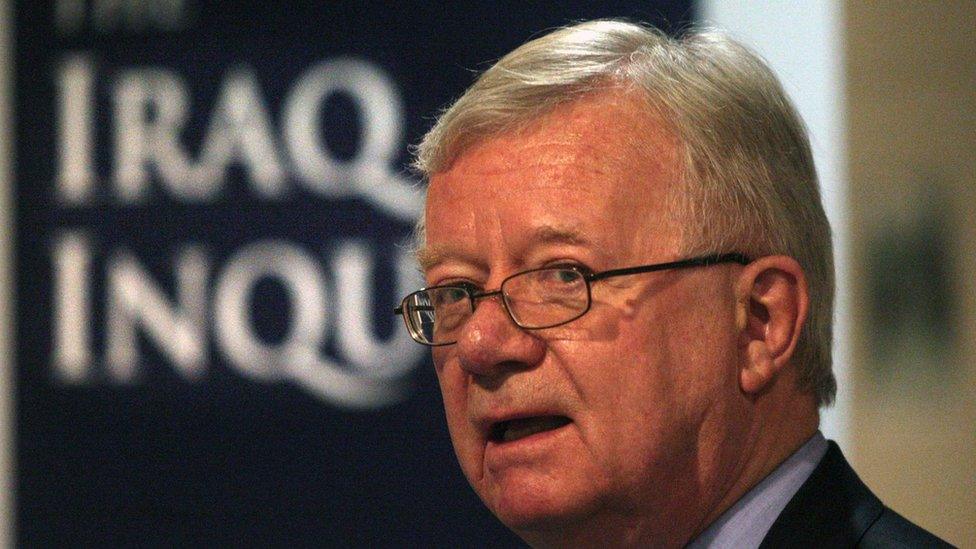Chilcot report: Politicians braced for fallout
- Published
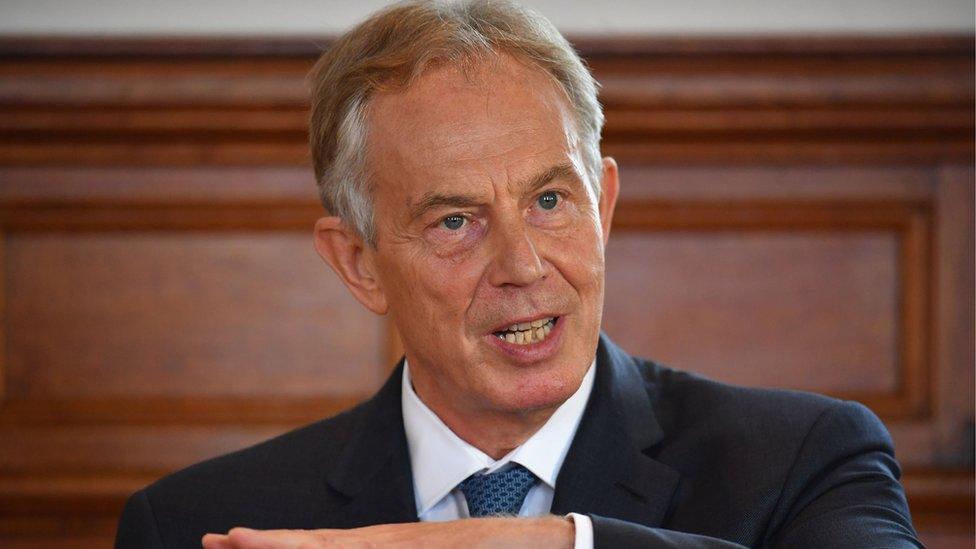
Tony Blair is ready to admit he underestimated the extent of factional fighting which erupted in the aftermath of the Iraq invasion.
Far less lethally, his party is currently engaged in infighting that he would never have predicted as prime minister.
It's a measure of how Labour has changed that its current leader is set to denounce its most successful one.
Jeremy Corbyn was instrumental in setting up the Stop the War Coalition to oppose - initially - military action in Afghanistan in 2001. At its peak it mobilised as many as two million people to demonstrate against the Iraq War.
In 2003, speaking at one of its rallies, Mr Corbyn - then a rebellious backbencher - predicted that those who took the country to war would pay a political price.
And on Wednesday he will have the opportunity to denounce Mr Blair from the despatch box of the House of Commons.
During last year's Labour leadership contest Mr Corbyn insisted that the war wasn't just "catastrophic" - and responsible for the current instability in the Middle East - but also "illegal".
That message clearly went down well with many who elected him so he is likely to repeat it.
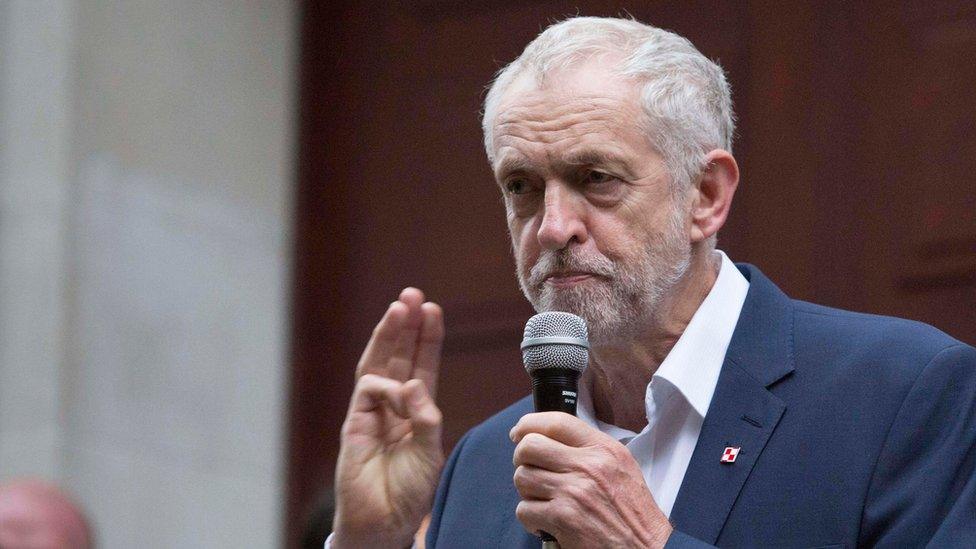
Labour leader Jeremy Corbyn is expected to speak in the Commons around lunchtime
He strongly hinted in a BBC interview last August that he may well brand Mr Blair a war criminal but he will wait to read the report before rushing to judgement.
His team is frustrated that he won't see it until 08:00 BST and will have just a short time to digest its two and a half million words (or even its 150-page "summary") before he is expected to speak about its findings in the Commons around lunchtime.
What is almost certain is that he will apologise for his party's role in taking the country to war. Mr Blair will not.
He has already apologised - on CNN - for failures in planning and said he regretted the inaccurate use of intelligence. But he won't say sorry for unseating Saddam Hussein.
'Damning' report?
In this, he won't just be attacked by the current Labour leader.
The SNP's foreign affairs spokesman - and former party leader - Alex Salmond has said he expects Chilcot to be "damning".
He will be searching the 29 previously unpublished memos from Mr Blair to President Bush for any evidence of what he calls "predetermination".
In other words, was Mr Blair privately settled on regime change when publicly, concerns about Iraq's weapons programme was being promoted as the basis for action?
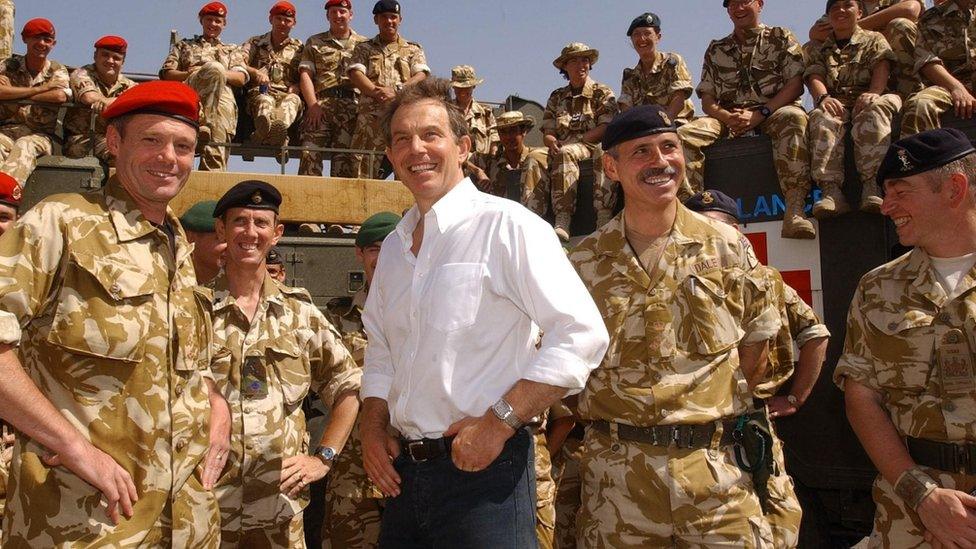
It is not just the reputation of Mr Blair, here meeting troops in Iraq in 2003, at stake
But the Chilcot inquiry was told from the outset to steer clear of apportioning "criminal or civil liability" - it will not pronounce on whether Mr Blair, or anyone else, is or is not a war criminal.
So the former prime minister's critics will have to assemble their own ammunition from the wealth of 150,000 documents that lie behind the report and not from the words of Sir John Chilcot himself.
Sir John has, however, revealed ahead of publication that he hasn't shied away from criticising individuals.
He served on the Butler inquiry in 2004, which looked at the use of intelligence, so it's highly likely that its criticisms of the use of informal "sofa government", rather than collective decision-making across the cabinet table, will be repeated.
The certainty with which Mr Blair presented "patchy" intelligence could well be called into question too - even if there was no deliberate attempt to mislead.
Lord Butler had said that "more weight was placed on the intelligence than it could bear".
But it's not just Mr Blair's political reputation that is at stake.
'Long shadow' of war
Clare Short's international development department and the apparently limited role it played in post-war reconstruction has been closely examined by Sir John.
The defence secretary in the run up to the war - Geoff Hoon - may face scrutiny over whether political and diplomatic manoeuvring delayed military planning and the provision of appropriate kit.
There has been strong criticism from some in the military as well as from bereaved families that our forces were - initially at least - not properly equipped.
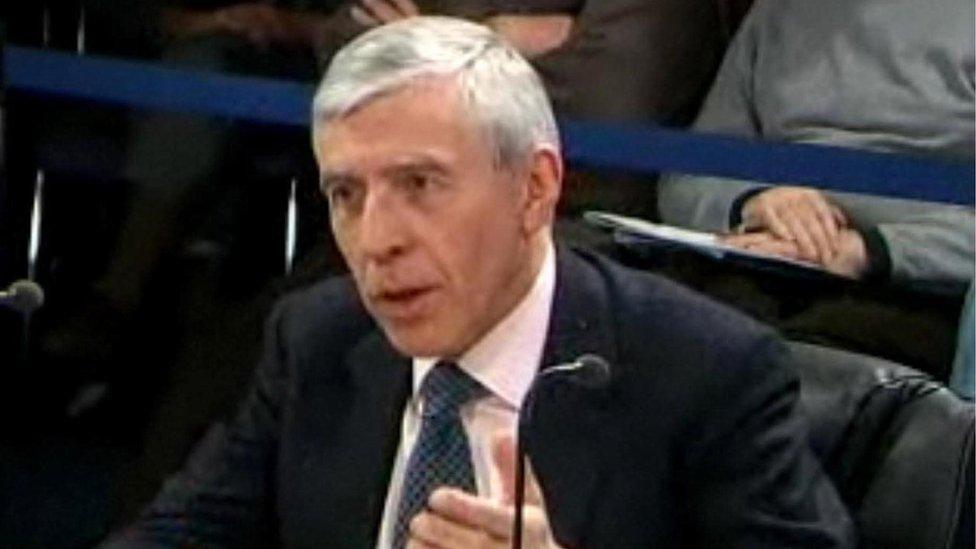
Former Foreign Secretary Jack Straw - pictured speaking at the inquiry - could face scrutiny
The then Foreign Secretary Jack Straw and former Attorney General Lord Goldsmith could face scrutiny in the report over why the full, and nuanced, legal advice on the war wasn't presented to the entire cabinet - though Sir John himself won't pronounce on the legality, or otherwise, of the conflict.
It will be for the outgoing Prime Minister David Cameron to respond first to the report, just an hour or so after publication - though he has had advance sight of it. He will have to outline any lessons learnt from a conflict he supported.
The Iraq War has cast a long shadow over domestic politics and foreign relations - and may have been responsible for a political reluctance to commit ground troops in subsequent conflicts.
But one legacy of Iraq has been welcomed by politicians.
There was a vote of MPs on whether to go to war in 2003 and there have been similar votes on major military action - from Libya to Syria - ever since. That tradition now seems to be embedded in our unwritten constitution.
- Published5 July 2016
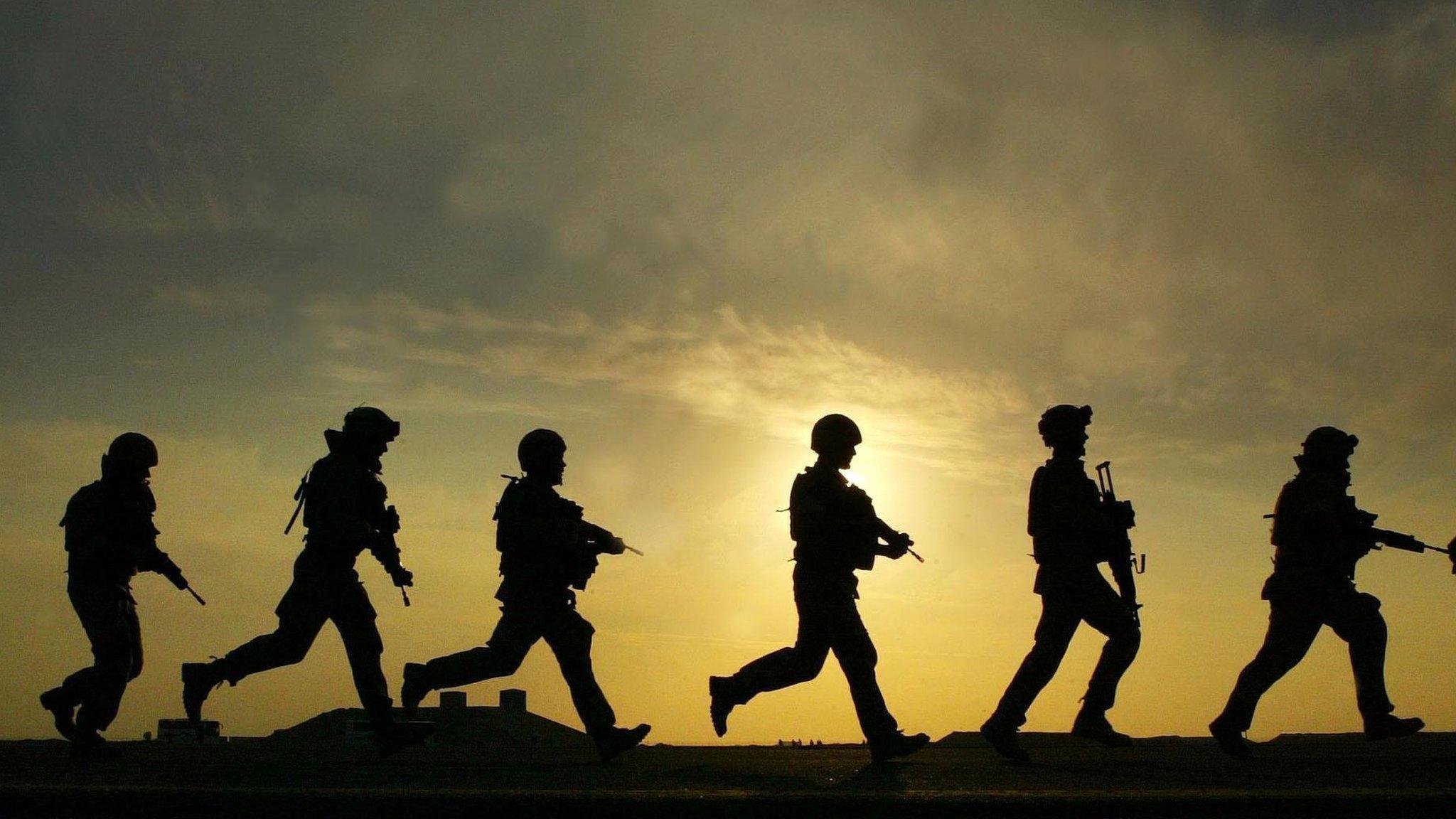
- Published4 July 2016
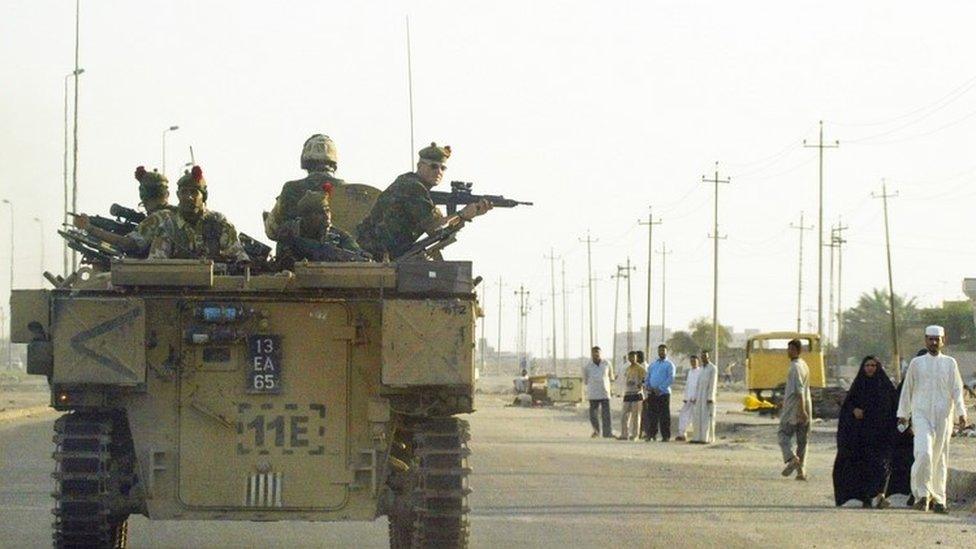
- Published5 July 2016
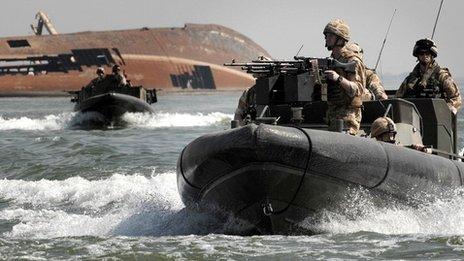
- Published4 July 2016
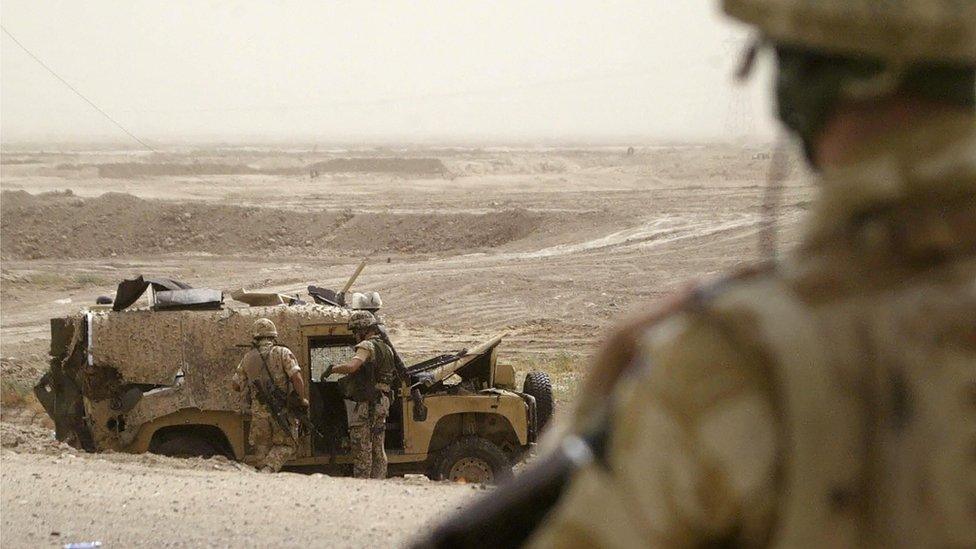
- Published4 July 2016
